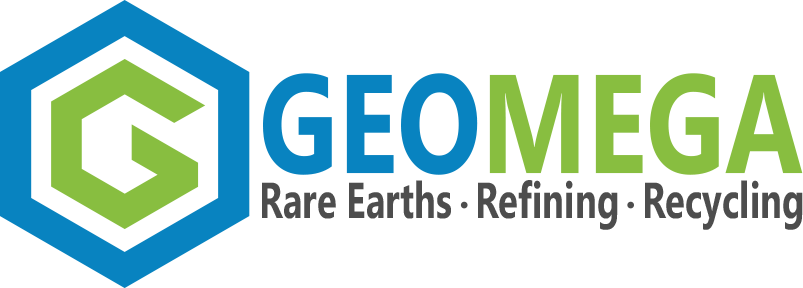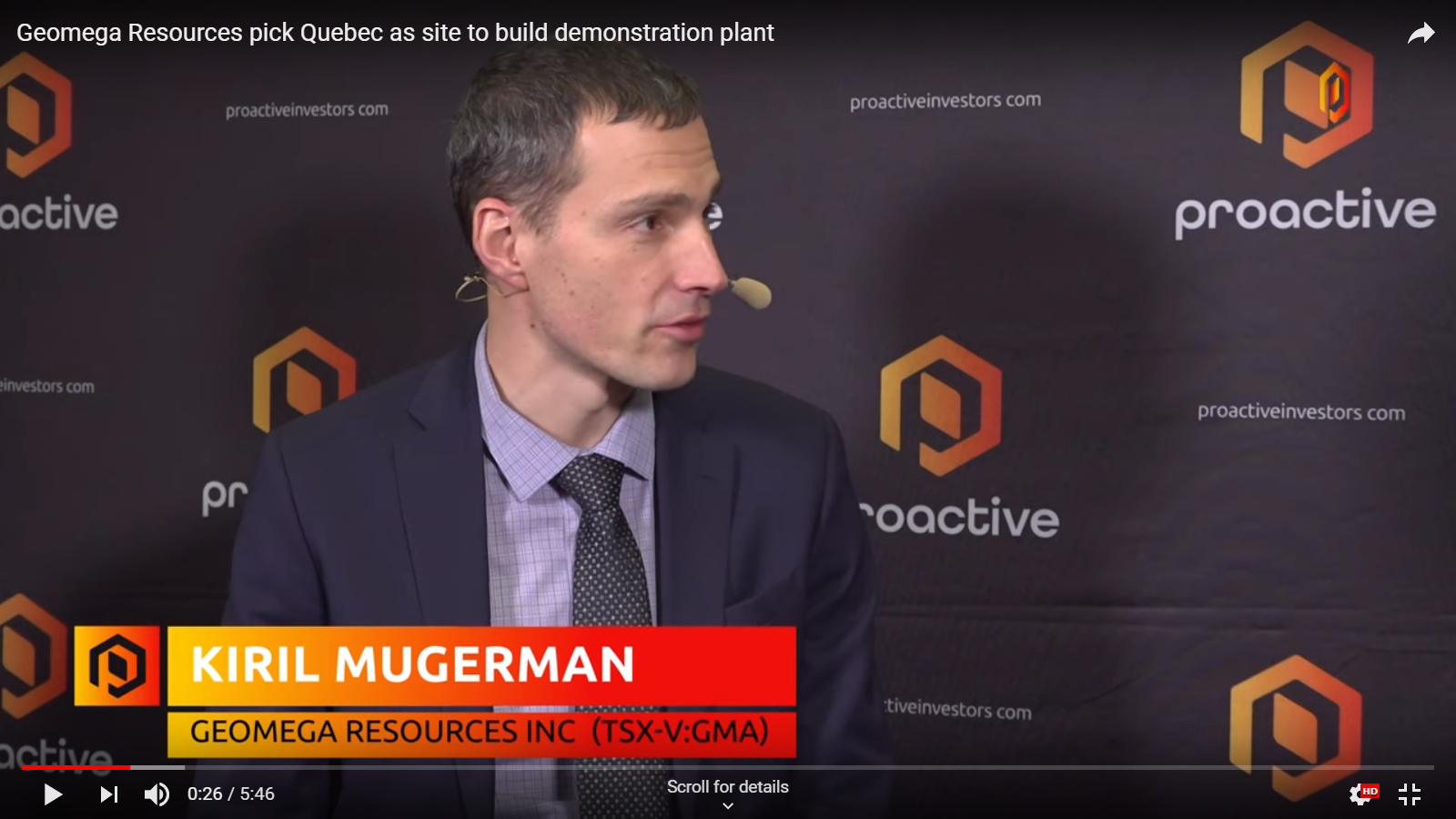Transcript: Kiril Mugerman with Proactive at VRIC2020
Geomega Resources pick Quebec as site to build demonstration plant
Steve Darling: Hello, I am Steve Darling with Proactive here at the Vancouver Resource Investment Conference. Joining us now is Kiril Mugerman, President & CEO of Geomega Resources. Kiril, great see you. How are you?
Kiril Mugerman: Pleasure. I’m doing pretty good.
Steve Darling: Tell me a little bit about this company. It is quite interesting.
Kiril Mugerman: We’ve been the progressing and advancing — growing over the last five years. We are a rare earth elements company, but not a traditional one that’s looking to develop a mine. Instead, we are focused on an innovative technology for refining and processing rare earth elements.
Steve Darling: Explain to us how this this process work. Is it material from a mine, is it old computers, what is it?
Kiril Mugerman: We developed a clean process. When we say clean process, it uses different reagents than what is traditionally used in China. It has been designed in a very innovative way where we recycle a lot of that reagent. Now, the way we are starting the commercial application of our technology is through recycling.
Kiril Mugerman: Recycling and refining are basically the same thing, just different scales. We are starting with the best feed out there, which is the magnet. Rare-earth elements are used to make magnets — that’s your main application by value. That’s why we are mining rare earths — we want to make magnets.
Kiril Mugerman: We are recycling those magnets. When we receive them, what happens is that we crush them if we receive them as solids. Sometimes we receive them as powders already, which is crushed material. Then it goes into a reactor where a process happens. It’s a sequence of three reactors where basically a process goes from one to the next one to the next one and we get our final product. The closer it goes towards the end of the process, the more similar to a traditional process. The first stages are very different and innovative, and do not produce the same waste that are produced in traditional technologies today.
Steve Darling: Why choose recycling?
Kiril Mugerman: If you look at innovative technologies, especially innovative technologies in specialty metals, you see companies come up with a new technology and then say that they want to apply it to a mine. Going from a pilot plant to a mine scale is just too big of a leap. The scale-up factor is too big. The financial risk is too big. Cost overruns and too many things can go wrong. We decided that we don’t want to go to a mining scale right away, but we want to generate cash while we are demonstrating it. So, we decided that recycling is the right way to make a commercial application, generate cash, and it is a needed part of the sector. To close the loop in the circular economy, as they call it, you do need to recycle. Funny enough, they do recycle in China. They do recycle rare earth magnets in China and they are basically the leader in that. Nobody talks about it. Outside of China, we basically throw it out. The need is there. It’s over a billion dollar industry today to recycle rare earth magnets.
Steve Darling: Now, you’ve chosen Quebec as the place where you want to build this test pilot project.
Kiril Mugerman: Our demonstration plant is going to be in Quebec. First of all, we are in Quebec. We’ve developed our pilot there and we know the regulations, the permits, the environment, and the government is a huge supporter. The government’s been great in supporting innovation, R&D, and is now great in supporting our financing efforts to take this into construction and into production. Going into other countries like Japan, for example, which is the largest second largest producer of magnets is exciting, but to go straight to Japan raises concerns — I don’t know the regulations, I don’t know the language, and it’s a different degree of risk that adds to cost.
Steve Darling: Familiarity is important.
Kiril Mugerman: Exactly. We want to start with Quebec as well because Canada is trying to become involved in the earth industry. We see the US government and the Canadian government in agreements on collaboration to try and kick-start that industry. Refining or recycling is basically the best way to kick-start that industry.
Steve Darling: What does 2020 look like for the company?
Kiril Mugerman: We are in the final stages of finalizing the financing so we can do the construction this year and put it into production and be operational. Our objective is to be cash flowing in 2020. Then, we can increase the scale of the plant. We are starting with just eight hours a day of operation. Once we see everything is working properly, we can turn it up a bit and run a full day twenty-four hours. We can generate even more — three times more the cash, the profit, and everything. That’s not for 2020. The goal for 2020 is to get the financing secured with the government, put everything into construction, then production, cash flow, and grow from there in the coming years.
Steve Darling: Looks like it’s gonna be a fun year. Look forward to hear more about it.
Kiril Mugerman: Yes, thank you.
Steve Darling: That was Kiril Mugerman, President and CEO of Geomega Resources.

